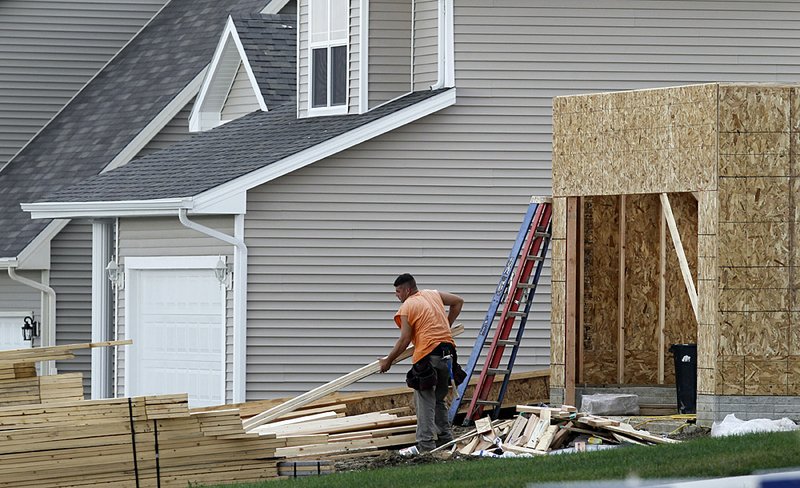WASHINGTON — Sales of new homes improved last month after the worst summer in nearly five decades, but not enough to lift the struggling economy.
The Commerce Department said Wednesday that new-home sales in September grew 6.6 percent from a month earlier to a seasonally adjusted annual sales pace of 307,000. Even with the increase, the past five months have been the worst for new home sales on records dating back to 1963.
Paul Dales, U.S. economist with Capital Economics, called the September home sales encouraging. But he said it doesn’t change the fact that activity remains at extremely low levels.
“That’s unlikely to change for a few years,” Dales said.
On Monday, the National Association of Realtors said purchases of existing homes increased 10 percent in September to a 4.53 million annual rate, from 4.12 million in August.
The uptick in new-home sales wasn’t enough to convince investors that the sector has returned to health.
Most major homebuilder stocks fell after the report’s release. Toll Brothers Inc. fell nearly 2 percent.
“The housing stocks are likely to perform well only if broader indications of economic improvement continue,” said Michael Gaiden, an analyst with Morningstar Inc.
New-home sales have risen 9 percent from the bottom in May but are still down 78 percent from their peak sales pace of nearly 1.4 million homes in July 2005.
It will likely take about three years for the industry to get back to a healthy annual rate of about 600,000 homes sold, said Brad Hunter, chief economist with Metro study, a real estate research and consulting firm.
Allegations that banks cut corners when filing legal documents to foreclose on homeowners could actually benefit homebuilders, Hunter said. Consumers might start to favor new homes over previously owned homes, worried that the purchase of a foreclosure could be contested or canceled if the previous owner claims the foreclosure was invalid.
Builders are competing with millions of foreclosures and other distressed properties that show no signs of abating. They are unlikely to ramp up construction until those are cleared away and demand picks up.
High unemployment, tight credit and uncertainty about home prices have kept people from buying homes. Government tax credits propelled the market earlier in the year, but those expired in April.
The September sales figures were driven by a 61 percent monthly surge in the Midwest. Sales grew about 3 percent in the South and Northeast. They fell by nearly 10 percent in the West.
The median sales price was $223,800. That was up 3.3 percent from a year earlier.
The number of unsold new homes on the market fell to 204,000, the lowest since July 1968. At the current sales pace, it would take about eight months to exhaust that supply, compared with a healthy level of about six months.
The industry is suffering the fallout of a major building boom, in which many homes were sold to speculators. They then resold the homes, often to borrowers who took out risky loans and defaulted.
Information for this article was contributed by Bob Willis of Bloomberg News.
Business, Pages 27 on 10/28/2010

